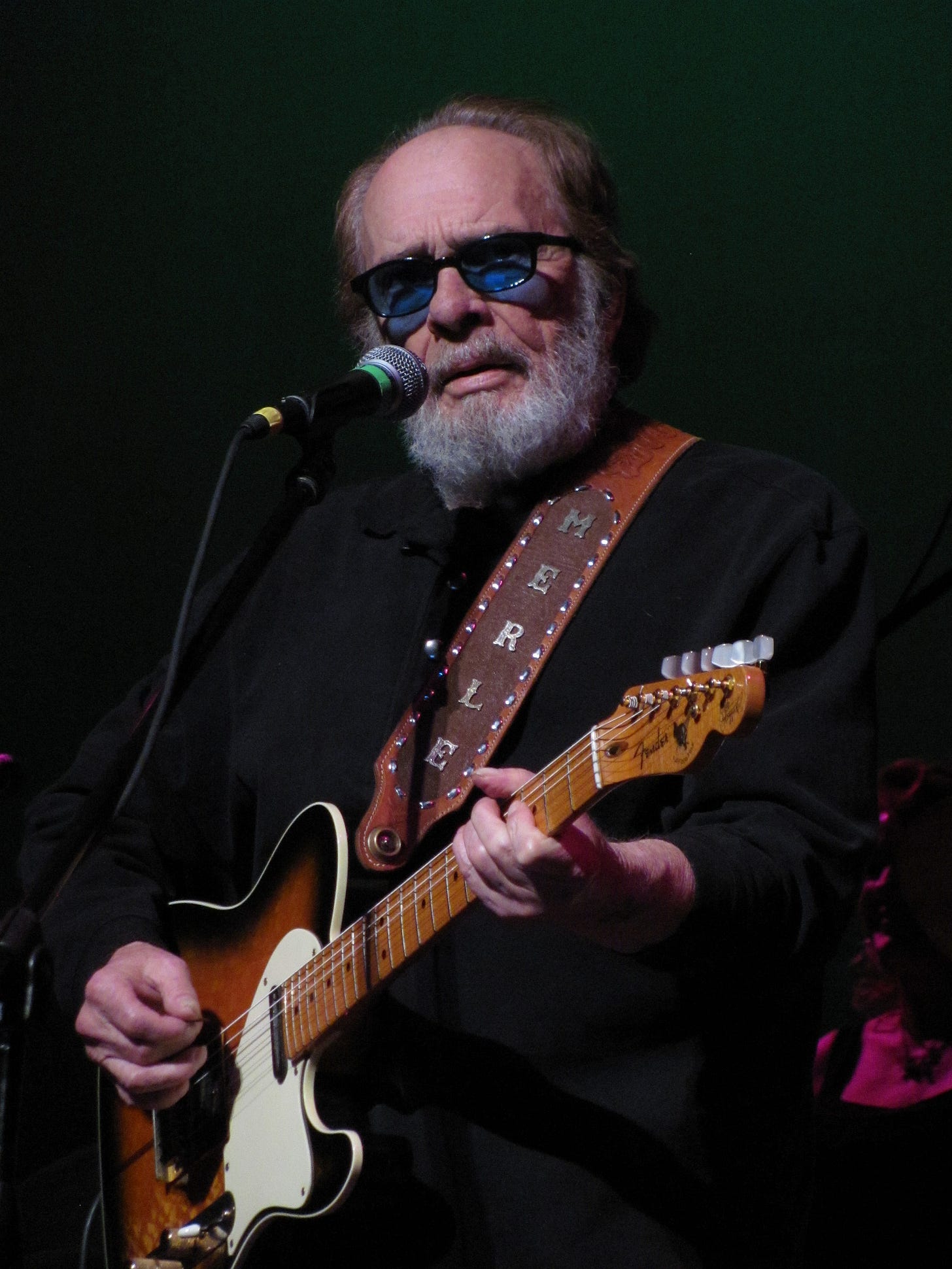
It’s always a thrill when somebody assigns you to interview an artist you’ve always respected or even revered. When that number inflates to three, the thrill isn’t gone, to paraphrase B. B. King, but rather it’s augmented by a sprinkle of intimidation. With one person, the deal is to outline a few general things that the story needs to cover but, if the conversation spins out in some unexpected direction, you enjoy the ride and see where it’ll take you before getting back to the points you need to cover.
When you’ve got three legends on the phone, that ride feels more like rush-hour traffic, which is of course harder to direct. But when each one is a giant in the broad stream of American music, and none of them has any axe to grind with the other two, that can turn into a journey to remember.
Add to that one more thing: Each of these legends is a master of the written word. Ray Price arguably stood side by side with George Jones as the two greatest interpreters of the country lyrics. Price’s standout performances spanned, or actually helped define, two vital movements: the honky-tonk feel that he and Hank Williams epitomized, and then the “countrypolitan” sound of the Fifties, with its velvety strings and boudoir ballad feel.
Merle Haggard and Willie Nelson are exceptional singers too, but they’re at least equally acclaimed for their songwriting. Each has crafted some of the most familiar lyrics of our time, some of them so well loved that the title alone can conjure the feel of the entire song: from Nelson, “Crazy,” “Night Life,” “Funny How Time Slips Away,” “Hello, Walls,” “Good Hearted Woman,” “Always On My Mind.” And from Hag, “Today I Started Lovin’ You Again,” “Mama Tried,” “Hungry Eyes,” “White Line Fever,” “Sing Me Back Home.”
Speaking with this august trinity, and trying to capture the magnitude of what this effort meant, was for me a big deal. But by the time we were done, the interview had become a conversation, laced with humor, laughter and an occasional barbed opinion, mainly from Ray. It was just what I’d hoped for. In retrospect, how could I have expected it would be any different?

****
Merle, I’ll start with you. Tell me about your history with Ray and Willie.
Haggard: I grew up loving Ray Price. And Willie and I came up in the business in the same years. He was playing gass for Ray and I was playing bass for Wynn Stewart; the year was 1962. He was having a little more luck than I was with writing songs. Early on in his career, he had some real good luck with songs like “Crazy.” I didn’t have no luck writing until later on, but I got lucky first on records, before Willie. Then he got hotter than a pistol. Over the years, it seems like Willie and I are joined at the hip. We do the same thing. He’s from Texas and I’m from California, but both of us have a Mexican mix in our music. It’s called mexicali music out in California. Down there, it’s called Tex/Mex. It’s very close. It’s a mixture of Mexican and white people. We come together as a family and we come together in music.
What does the title, Last of the Breed, mean to you?
Haggard: Well, that’s the attitude of these two jerks I’m recording with [laughs]. No, they’re my great friends.
Nelson: You could say that Merle and Waylon [Jennings] and Kris [Kristofferson] and Hank Williams, Floyd Tillman and Bob Willis. … There’s a long, long list that I would consider to be in that breed.
You don’t see those ranks being replenished much these days.
Nelson: Well, it’s like “The Last of the Mohicans”: There just ain’t no more fucking Indians [laughs].
How did the idea for this project come about?
Price: I don’t really remember how it started out. I think I broached the idea to Willie. Of course he was up for it, right off the bat. Then we talked to Merle and he thought it was great. It didn’t come up from any hard drinking. But we all agreed to it.
Haggard: But actually, we’d been talking about this for a long time over the years.
Nelson: That’s right. We’d been talking about touring together, then we finally figured out that one of the best ways to do a tour is to do an album.
Haggard: If it wasn’t for Fred Foster, it probably wouldn’t have happened.
How did he help?
Haggard: He just brought us all together, I think.
Price: Fred was like my old producer, Don Law: He let us do what we wanted to do.
How’d he get involved?
Nelson: I contacted Fred, who’s a great producer. He knew exactly who to call and what to do.
Price: As far as I’m concerned, Fred Foster is one of the better producers who’s been left lying around, not being used a whole lot, which is a shame.
How did you choose which songs to do?
Price: We wanted to do something nobody had ever done before. New songs, old songs, it didn’t matter. Willie said, “Let’s do old songs and each one of us will bring a new one.” So I brought one, Willie brought one or two, and I think Merle may have had one or two of them.
Why did you take that approach?
Nelson: There were a couple of reasons. While we’re touring, we want to be able to do some new songs, plus we knew that audiences are going to want to hear some of the older stuff. We mixed a few of the new ones in there, so now, when we do tour, we can do everything on the album every night. Asleep At The wheel is going to be the band behind us. It’ll be similar to the Highwaymen tour.
Haggard: Between you and me, I think Willie had just purchased a bunch of them for his publishing company [laughs].
Nelson: Guilty. You got me [laughs].
Haggard: Like, he just bought a bunch of Floyd’s songs. Any time one of us gets lucky like that, we try to record those songs. Also, he didn’t just purchase any songs. When you purchase songs written by those kinds of people, it’s a great thing. You might as well put them in your basket of material.
Price: We just sat down together in a living room or somewhere, talking and recalling songs that we know and were really great. And we started doing them. We went into the studio and did them.
Were there many songs on the list that you’d never sung before?
Price: There was quite a few for me. I knew the song but I’d never sung it. They brought a whole lot of things to the table that were strange to me, other than I knew the melody. It wasn’t really a problem, but there were songs from way back in the past and up to date. In my opinion, they’re the better songs of the last century.
Nelson: These songs are tried and true. People already know they’re great songs. I’ve sung “Some Other World” in beer joints all over the world all my life, along with “I Love You So Much It Hurts” and “I’ll Keep On Loving You.” Then there’s Lefty Frizzell’s “Always Late.” Haggard is one of the best, if not the best, at singing Lefty Frizzell songs.
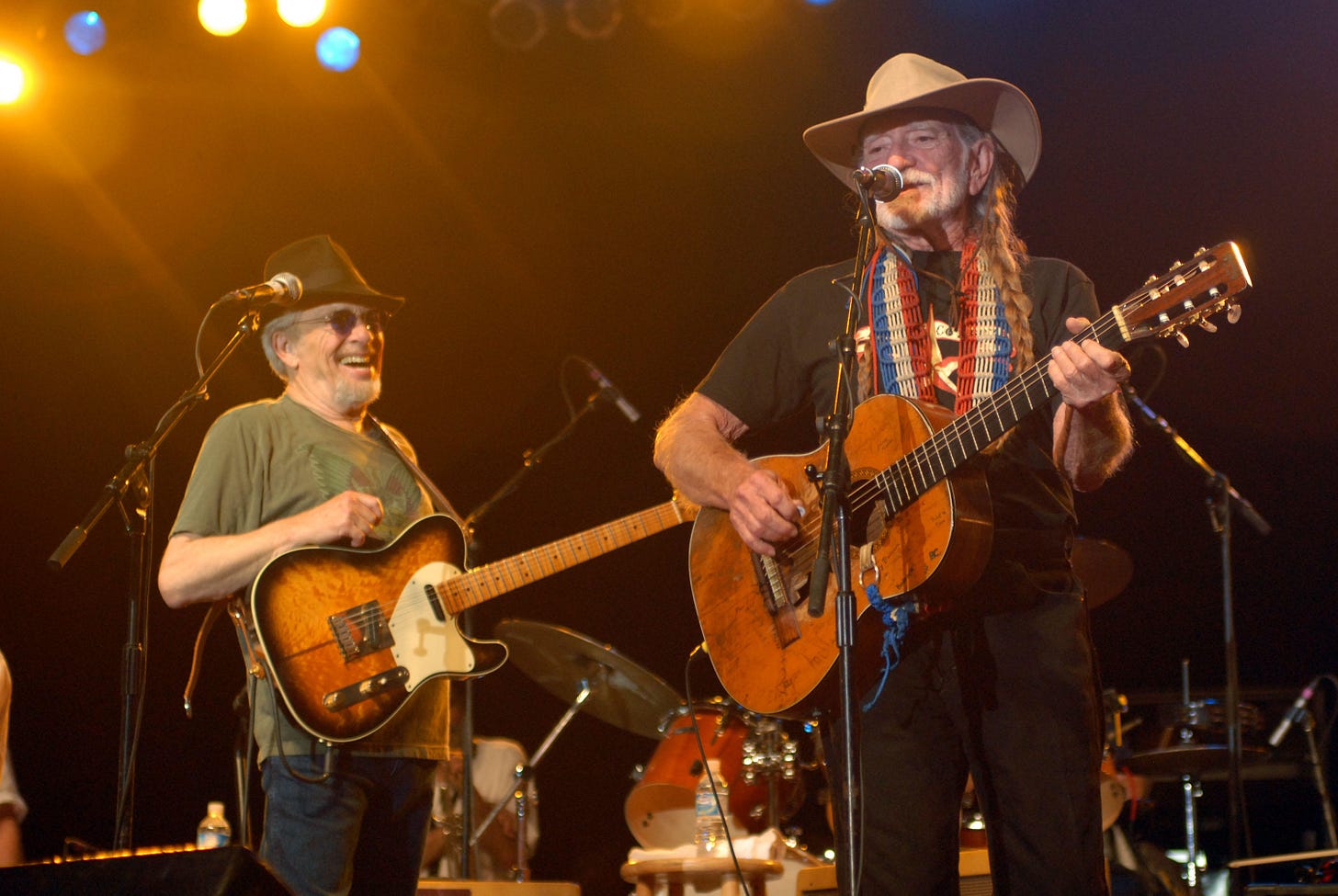
Haggard: Willie and I were highly influenced by Lefty Frizzell. We did those songs “off the shoulder”; they didn’t have to be written down. When Ray, Willie and I worked the nightclubs, you had to know pretty much all the songs by Lefty Frizzell, Floyd Tillman and Harlan Howard. Willie was probably pretty sure that we had all those songs in our repertoire. I think it was about doing songs we were pretty sure we all understood.
There’s only one Harlan Howard tune on the record, though: “Pick Me Up on Your Way Down.”
Haggard: That’s the one I was thinking about. That was the first one we did. I remember walking into the studio as the band was playing something. I forget what it was, but when they got done playing it, they said, “Pick Me Up on Your Way Down.” I went straight to the microphone and the three of us sang the song through one time. And that was it.
How did you figure out who would sing which verse?
Haggard: We worked that out immediately, with the wink of an eye. To be honest with you, I’m not sure how we came up with the selection. “Sweet Jesus” was the song I brought with me. I don’t know if it made the album. Probably not. [Note: It did.]
Where did that one come from?
Haggard: That’s a new song that Kenny Vernon and I wrote.
And you’d never recorded it before?
Haggard: No. We didn’t get finished with that. I doubt it will make the record. Nobody knew it, because it was a new song. Ray wasn’t satisfied with it. We probably need to revisit the microphone on that one. If they don’t use it, I’d like to fix it and use it on an album of mine.
Nelson: I hadn’t heard that one before. Ray brought one in, called “One Hell of a Ride.” I hadn’t heard that song before I got there either. The tracks were cut … in fact, I take that back. Some of the tracks were cut live after Ray, Merle and I got there. I can’t remember exactly which ones we did live. It might have been the new ones, where I’d let Merle go in with the band and cut the track on “Sweet Jesus,” and I’d come back and do my vocals later. The same thing could have happened on the song that Ray brought. Ray cut it and I went back maybe later on that day.
Some of them go way, way back. I’m thinking of the Gene Autry tune, “Silver Haired Daddy.”
Nelson: I think I recorded that once, but I really don’t remember. I’ve always loved that song and listened to it and sung it all my life.
Haggard: Now, I’d never sung that one over the years. That’s really a jewel. I don’t know who came up with it. I didn’t.
Nelson: I think Fred Foster suggested it, but I’m not sure. He came out a couple of times, we got keys down, and he went back in and cut the tracks. Ray, Merle and I came in with the vocals. It was an easy album to make
Haggard: Willie’s real good at coming up with things like that, things that haven’t been overused.
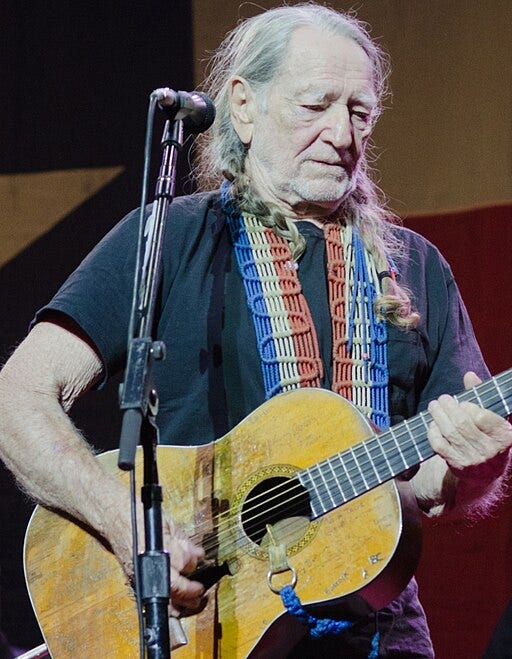
Willie, you brought in a song that you’d just written, “Shuttle Back to Earth.”
Haggard: Willie and I both brought that song to the session.
Price: He kind of sneaked it in on us [laughs].
Nelson: I wrote that song last year. Actually, I’ve recorded it three times. I did it again with Merle because he loves the song and he does it on his show every night. I also did it in Austin with my sister Bobbie on the piano. We did a very small session on that.
Haggard: It’s a strange song. I didn’t even write it down. I went directly to the stage to sing it, and the people just went nuts, man. I’ve been singing it on the road ever since and getting a lot of response from it, so it was nice that we could do that song because both of us knew it. I don’t think it’s ever been written down; I recorded it out of hearing [i.e., by ear]. Nobody even made a chord sheet on it. I think we went down there and Willie said, ‘Let’s do “Shuttle Back to Earth.”’ I said okay and he said, “Let me go write the words down.” I said, “Why would we want to do that? We haven’t written anything down yet [laughs].” But he did write down the words. Then we started reading it. I actually don’t think either one of us sing it as good on that cut as we did before. Maybe that’s because it was written down on paper [laughs].
You revisit a good number of tunes on this album that you’d recorded before.
Haggard: Well, there’s a Stuart Hamblen song on there, called “My Mary.” It seems like every time Willie and I get together, we sing that song. We both love that song. That’s one we’ve done before, back and forth, up and down.
There’s a line in that song that reads, “I take a trip every evening, strolling down Memory Lane.” These are simple, not clever, lyrics. They come not just from out of your heart but from out of history somehow.
Haggard: I think the great difference between the music on our album and current-day music is that you can actually whistle the melodies of these songs we’re singing. Each one of them has its own indelible memory.
“Back in the day, in the last century, people wrote songs with a lot of meaning in them because times were hard.” — Ray Prince
Price: Also, back in the day, in the last century, people wrote songs with a lot of meaning in them because times were hard. Blues were rampant. When you come up the hard way, you learn ways to say something that are a little different from the proper English, you might say. New York started to put out this bad, modern rock & roll. They decided to do that and kill Nashville and the country musicians. They almost got that done, but this record is going to change that.
Haggard: I’m sorry I don’t have a clever comment about today’s music. All I can say is, in all honesty, that I don’t hear much melody. Rap music is at the top of the list. There’s no melody there, so I don’t identify with that. I don’t understand what they’re doing. It doesn’t entertain me. But I understand it’s a great art form; otherwise, it wouldn’t be successful.
Price: The main thing is, young people have never heard this kind of song. We’re the only three, with the exception of [George] Jones, who are still alive. New York has done its best to kill us but hasn’t been able to. I’ve been making records since ‘48, and with what I’ve learned and Willie has learned and Merle, this could be a history-making thing. If it’s done right, from A to Z. I’ve been in the business so long that I know what it takes to do that. So do Willie and Merle.
“Last of the Breed” pretty much says that, in four words.
Price: That’s about it.
Haggard: If you’ve got three guys in the studio who are able to conduct themselves with experience, and you’re able to pull something off in a matter of hours, let’s be honest: You couldn’t do that with the majority of current-day stars. You couldn’t put three of ‘em together and have them record eighteen songs. Hell, they wouldn’t know eighteen songs! That comes from having to be raised in this business with different technologies. We had to form these songs in public. If we didn’t, well, then the first trip around would have been the last.
You did this whole thing in just a few hours?
Price: In two days. We just winged it. That’s just the way we work. We’ve all been at it so long that we all knew what to do. We started around ten or eleven o’clock, or maybe close to noon. For the words we didn’t know, the words were there [on paper], so there was no problem. We were all in one small cubicle. Each one of us had a mic and sheet music. We went from there.
Haggard: It was really fun with the three of us together, because you could see how Willie gets all over the mic. I get all over the mic. And Ray just stands there and looks straight into that mic. He doesn’t move; he just sings his ass off [laughs]. I told Willie, after we got done, “You know, you and I got a singing lesson.”
Price: Well, I think Merle is bullshitting someone [laughs].
How did you blend your voices? You each have a unique style and tone.
Haggard: We just did whatever we felt was necessary. There were a couple of things that Willie and Ray sang without me. Willie and I did a couple of things without Ray. We didn’t make it a trio just because we were standing there. We had such talented people in the studio. You take Willie Nelson, Ray Price and Merle Haggard. Then you add Buddy Emmons and the rest of the crew that was there that day.
Price: Buddy Emmons is the only steel player in the world, as far as I’m concerned, for records.
Nelson: Buddy Emmons and Johnny Gimble are as good as it gets, if you want to play Western swing. It was the same band that’s on the Cindy Walker CD [Nelson’s You Don’t Know Me: The Songs of Cindy Walker, released in 2006].
Haggard: There’s really not much that has to be said. We all know what we should do. It was a labor of joy.
Price: We do all the same songs. We could do it in a different way, which is our own style. We’ve been at it so long that we’re professional at it. This could be the biggest record of Willie’s, Merle’s and my careers.
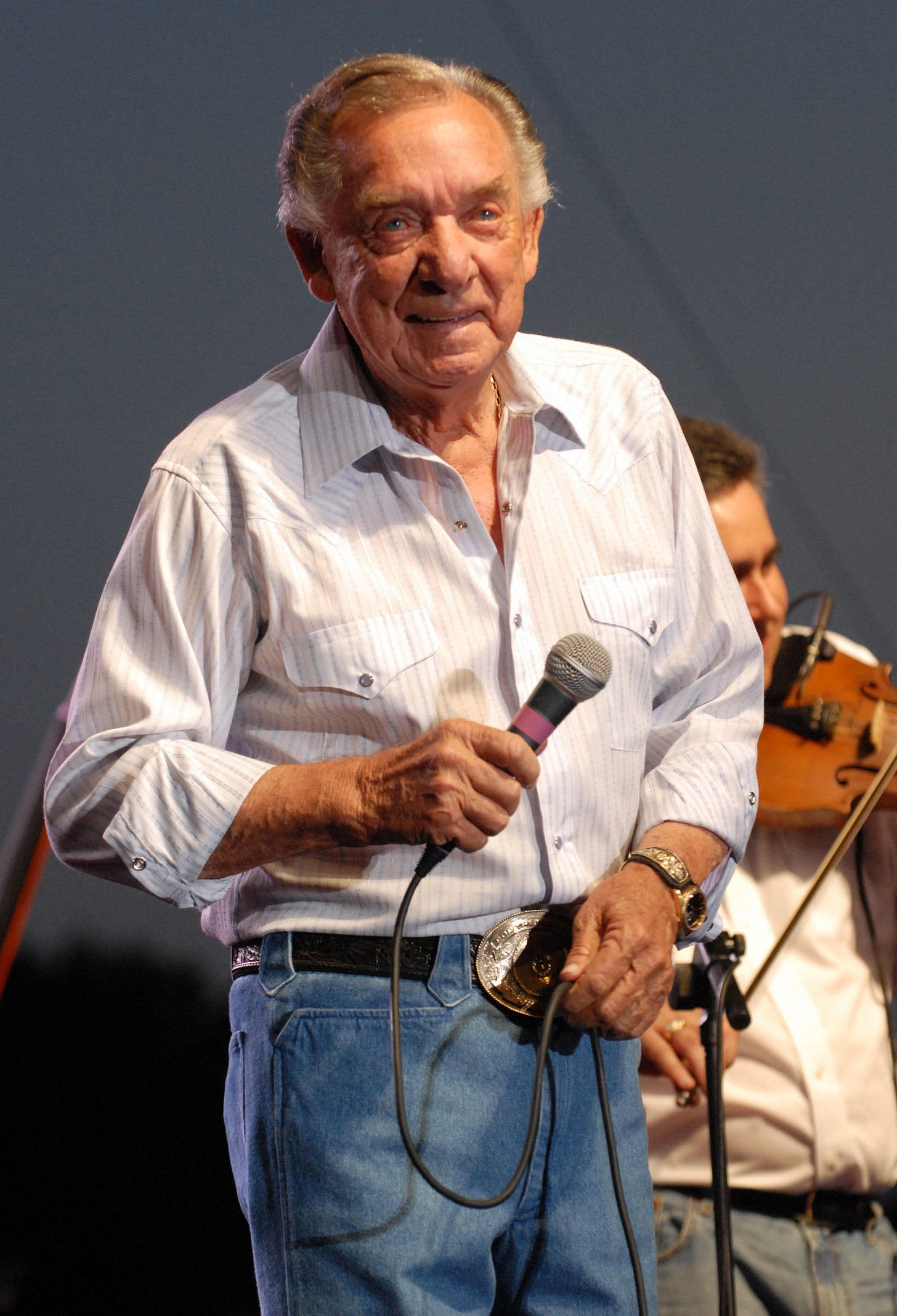
“You can’t imagine how bad people want to hear good music.” — Ray Price
Why is that?
Price: They’re dying for it out there. You can’t imagine how bad people want to hear good music. It’s just unreal. I don’t know why it was turned off, unless they just didn’t like it. I think everyone in the business went for the kids because the old boys were slowing down. Then they just [unintelligible] the old boys, but it didn’t die. Drugs and killing and sex aren’t things you can talk about with your sweetheart without being an asshole [laughs].
Nelson: Well, I did an album called Stardust, where we took a lot of the great songs of the past that young people had probably never heard, unless they heard their dad or mom hum them. These are the same kinds of songs. They were there a long time ago. They meant a lot to a lot of people a long time ago. All they really need is to be exposed so someone can hear them again – or for the first time.
The lyrics of these older songs are so conversational. You could imagine people saying as well as singing them.
Price: Right, and it don’t sound phony when you do it right. That’s the secret. It is conversation. We’ve learned how to do that. When we sing to the audience, we want them to think that we’re talking directly to each and every one of them. Of course, the great writers went through a lot of problems. It just don’t happen the first time. If it does, you’re in bad trouble; you’ve got to overcome yourself, and that’s hard to do.
What’s It All Mean?
Any final thoughts you’d like to toss into the mix?
Nelson: I’m looking forward to the tour and the CD. It’s going to be a lot of fun for all of us. We’re going to tour the same time as the album. The album goes out on the ninth of March and we start touring right in there somewhere. We’re doing eight or ten days; we’re going to Texas, San Antonio, Dallas, Nashville, New York City, Kansas City, Chicago … We’re taking it around the country, trying to promote the album.
Price: And I’m looking forward to bridging the gap with this record, back to where it was when country music was so great. Country music didn’t die; it just left the country. We’re trying to revive it. I’m real proud of it. I’m happy to be with two of my good friends. I feel like Willie is my brother. It was a real pleasure, at the age I’m at, to put another mark on the wall, because my career has been blooming real big over the past year and it’s getting bigger all the time. It’s like it was back before I was turned out of New York.
Merle?
Haggard: I’m the junior of the three, so I’ll just say it’s my great honor to be a part of this.
####




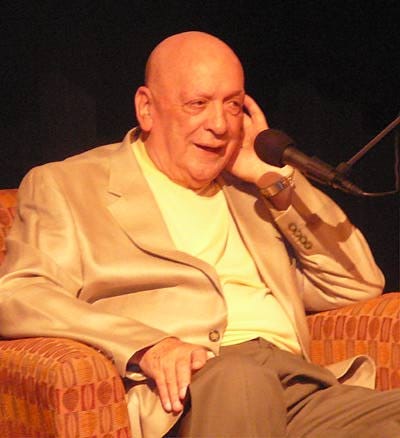
I’m surprised that Van Cliburn would have risked injuring his hand. 🥸
Great to read this. I need to check out Ray Price. Thanks!